To complement Ferma’s leadership panel this morning, StrategicRISK spoke to five women at the top of their game and asked, what can up-andcoming leaders learn from your leadership journey?
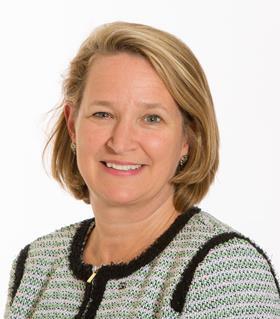
Kelly Lyles, chief executive, client & country management, AXA XL
What were your biggest challenges during the early years of yourleadership role(s)?
Balancing work and a young family in the days before flexible working, without the technology and communications tools and devices we at AXA XL use to work from anywhere around the world.
What lessons have you learnt?
Don’t wait for someone to ask if you want a role – go and ask for it politely. To progress, I believe it’s important to be bold, open to change and to keep learning. Also, don’t underestimate the importance of a sponsor. I was lucky to have sponsors who believed in my abilities and helped me progress.
What can risk managers do to become better leaders?
Demonstrate to their boards and senior management that theyhave their company’s data at their fingertips and are leveraging the insights to make better decisions and recommendations. By doing so, they will ensure they have a seat at the table when strategic decisions are taken.
How can we inspire the next generation to become effective leaders in the digital age?
In the digital age, it’s important not to lose track of the human element. Technology is vital for making our industry more efficient but good communication and trusted relationships cannot be substituted. We need to demonstrate to the leaders of the future the value of communication and of building relationships.
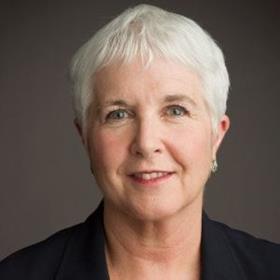
Roberta Butler, senior vice-president, marketing, FM Global
What were your biggest challenges during the early years of your leadership role(s)?
As a young woman in a male-dominated industry, my early challenges were in being seen as knowledgeable about the business and being heard when I spoke. In my later career, I’ve adopted the notion of “amplification” – when a woman contributes in a meeting, I find a way to positively reinforce what she has said, using her name; “To Kate’s great point, I would add…”
What lessons have you learnt?
Know your stuff! Absolutely the ticket to the game is being on top of whatever you are working on. That’s rule #1. And #2 is listen to your gut; your intuition really is an excellent guide. If something doesn’t feel right, it isn’t right. My #3 is embrace the power your role grants you and don’t be afraid to take the lead. Your colleagues, reports and managers expect you to. Go for it!
What can risk managers do to become better leaders?
Listen and watch how other leaders across industries and non-profits do their jobs and do the same with those you work with; both direct reports and peers. Probably more listening than talking in both instances!
Amplify the work of those on your team: give credit and encourage risk taking as the best leaders do. Your job isn’t to be the best at everything, it’s to coax the very best ideas and work from those who surround you. How can we inspire the next generation to become effective leaders in the digital age?
I admire the speaking skills and teamwork approach of the “next generation”. I’m watching some pretty amazing young leaders grow in my own organisation, so I’m not too worried about the future! I believe that it’s important for current leaders to take an active role in guiding the next
generation so they can leapfrog over mistakes made in the past. “He (or she!)
who does not learn the lessons of history is condemned to repeat them,” a wise philosopher once said. So, w current leaders should inspire, by sharing institutional knowledge and encouraging the continuous exploration of new ideas.
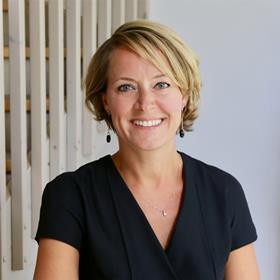
Carolina Klint, chief executive, North West Region, Marsh Continental Europe
What were your biggest challenges during the early years of your leadership role(s)?
At the outset, I struggled with leaving my specialist identity behind. I felt, as a manager, I had to become a generalist, but then I realised that you can (and should) specialise in leadership. Also, in my first management role, I remember feeling challenged by how to best lead my former peers, and how to gain respect and authority while balancing the great relationship we had before.
What lessons have you learnt?
Successful leadership is all about the team you can attract and develop. If you can inspire, energise and amplify the capabilities of the talents you work with, you will be able to do more with less, drive change and innovation, and deliver outstanding results. It is the ultimate leadership paradox; it’s all about you, but it’s not about you at all.
What can risk managers do to become better leaders?
Risk management is a highly strategic business; good analytical skills and keen business acumen are important. I would also recommend focusing on developing strong communication and influencing skills.
How can we inspire the next generation to become effective leadership in the digital age?
Given the pace of change, leaders will no longer be able to take ownership of everything. The foundation of effective leadership is providing clear direction and communicating with purpose to enable more distributed decision-making. Involvement and participation from everyone will be critical to capture changes as they happen.

Valentina Paduano, chief risk officer & sustainability director, Sogefi Group
What were your biggest challenges during the early years of your leadership role(s)?
The biggest challenges were and still is in sustaining the attention of the business and line management and increasing the credibility of risk management. Usually, things that are not directly linked to generating money is perceived as “secondary” in corporate organisations. It is very difficult to make management aware that risk management is a driver to generating money.
What lessons have you learnt?
To be as business-focused as possible in the application of risk knowledge and putting to the side the “methodology”. It is important to be aware of the business context.
What can risk managers do to become better leaders?
The risk manager must spend a lot of time analysing the business and the marketplace in which the organisation operates, in order to have more proactive conversation with the management.
Furthermore, risk managers should enhance their soft skills. This will help them to push forward the risk discussion. Skills such as listening, comprehension, pragmatism, optimism in analysing negative events are important. A survey conducted two years ago by ANRA (the Italian risk management association) shows just how important these skills are and that women were much more prepared with soft skills than their male counterparts.
How can we inspire the next generation to become effective leadership in the digital age?
In a fast and dynamic world, the risk manager also needs to be dynamic, monitoring the market trends, the new technologies and evaluating the effects on the business. In one word, be PROACTIVE.
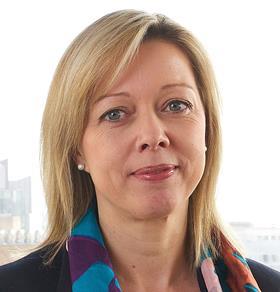
Elke Vagenende, head of western Europe for FINEX, Willis Towers Watson.
What were your biggest challenges during the early years of your leadership role(s)?
Time management was a challenge at first: as my responsibilities increased, it became trickier to stay on top of everything, especially as my two daughters were still young, so I was forever running around. Over time, I have learned that I don’t need to be personally involved in everything, and that having a great team around you is key. It’s OK not to be an expert in everything, as long as you know where to find the answer.
What lessons have you learnt along?
Investing time in relationships both within your company and externally are key. Most of the opportunities I have come across in my career are the result of connections or recommendations from other people. Second, it’s OK to make mistakes. It’s not great in the moment, but it happens, and it makes you more grounded as an individual. And third, it’s important to keep up to speed with what is going on in the wider economic and business world. I try to make time to read interesting books and take a few podcasts on my business travels.
What can risk managers do to become better leaders?
As a risk manager, you are often part of a relatively smaller department in a larger company, so staying connected with your industry and the market are important. This is where organisations like Ferma are great, as they offer excellent insights.
How can we inspire the next generation to become effective leaders in the digital age?
We need to communicate what an exciting and dynamic time it is to be part of this industry, and how we need people with different skills and backgrounds joining us to help drive digital transformation and the client experience.














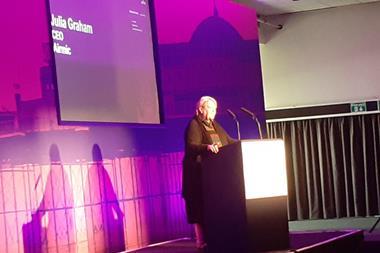
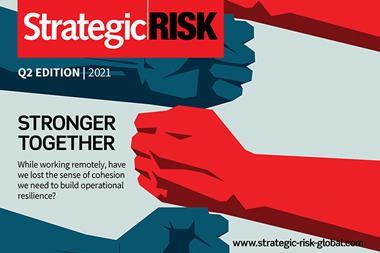
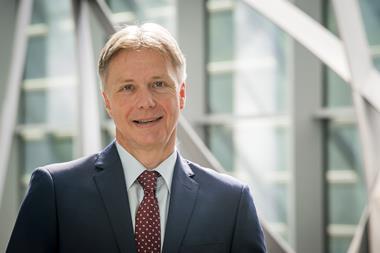



No comments yet